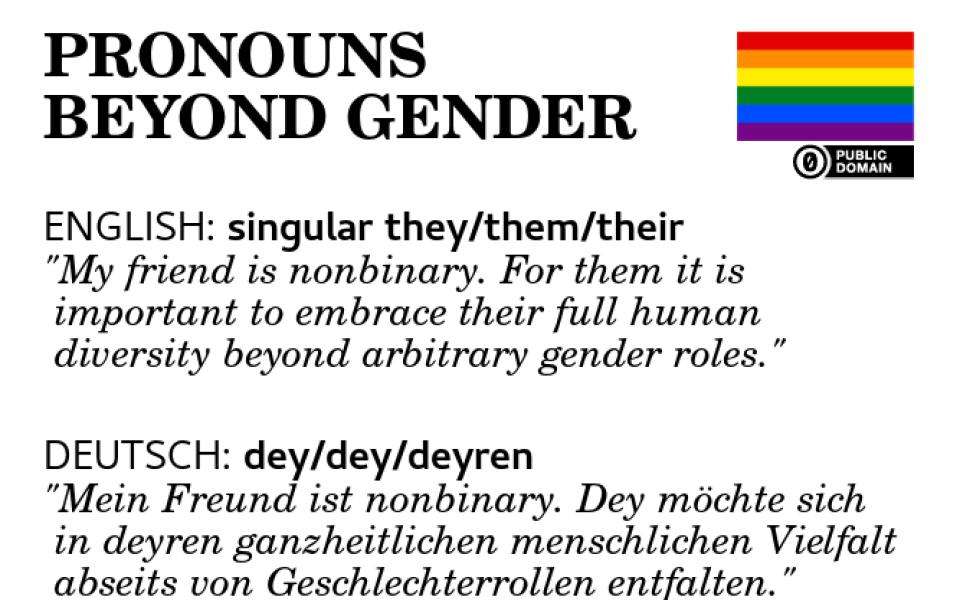
I’m not saying “man” and “dude” as much. I have stopped using the terms “bravo” or “brava” with my writers. And I believe I have uttered the word “businesswoman” for the very last time in my life.
I’m de-gendering my language — trying to, anyway — and you should too!
When it comes to grammar, I am decidedly old school. We do not split infinitives at Triad City Beat, nor do we allow participles to dangle. And as far as I’m concerned, the only one allowed to start a sentence with “And” is me.
It must be so. As purveyors of the written word, editors and journalists — along with everyone else who actively makes sentences in proper English — are official custodians of the language.
The language is important because it’s how we take the abstract thoughts in our heads and make them concrete. The word “table” is a construct as much as the actual table is. And the language itself is a living, breathing thing, metaphorically speaking. It changes when we need it to.
And so “they” became a singular pronoun. I fought it at first, because it did not satisfy the mathematical balance a sentence must have. But then, I understood, our gendered singular pronouns no longer did the job of describing things accurately.
After that, I began to notice how soaked my own writing and speech was in gender-specific references and words, and how they subtly, almost invisibly informed my worldview. It came into focus for me one night at an event I was working. I referred to a guest as “one of the Triad’s most successful businesswomen….” And even as I said it, the word caught in my throat.
This woman had been in business for more than 20 years, had been a pioneer in an industry and grown through smart moves and savvy. When I called her a businesswoman, in my own head I heard, Pretty good, for a lady.
And that didn’t sound right at all.
Join the First Amendment Society, a membership that goes directly to funding TCB‘s newsroom.
We believe that reporting can save the world.
The TCB First Amendment Society recognizes the vital role of a free, unfettered press with a bundling of local experiences designed to build community, and unique engagements with our newsroom that will help you understand, and shape, local journalism’s critical role in uplifting the people in our cities.
All revenue goes directly into the newsroom as reporters’ salaries and freelance commissions.


Leave a Reply